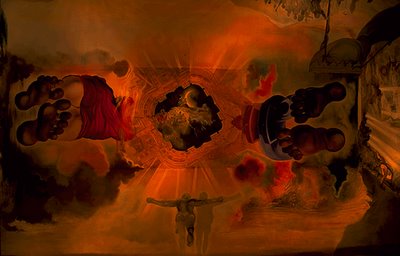
I cry aloud to God, aloud to God, that he may hear me. In the day of my trouble I seek the Lord; in the night my hand is stretched out without wearying; my soul refuses to be comforted. I think of God, and I moan; I meditate, and my spirit faints. You keep my eyelids from closing; I am so troubled that I cannot speak. I consider the days of old, and remember the years of long ago. I commune with my heart in the night; I meditate and search my spirit: Will the Lord spurn for ever, and never again be favourable? Has his steadfast love ceased for ever? Are his promises at an end for all time? Has God forgotten to be gracious? Has he in anger shut up his compassion? (Psalm 77: 1-9)
Night can nourish anxiety. The distractions of the day recede. Descending into sleep our defenses fall. Our worries may rise up. We can be shaken awake - or trapped in a troubled slumber - having been captured by our deepest fears.
Fear and anxiety are the children of lack of control and desire for control. One of these parents - the desire for control - is troubled and conflicted. He tends to forget the past, undervalue the present, and worry too much about the future. The other parent - lack of control - enjoys sharing old memories, embraces the present, and approaches the future with hope.
The psalmist reaches out to the second parent. In the succeeding verses he recalls how she has been with him in the past and has transformed his grief into celebration. He writes, "It is my grief that the right hand of the Most High has changed." This grief, chalah, can mean a self-generated sickness. Seeking control creates unnecessary worry. Embracing lack of control can be a source of hope.
I am almost certain the image above is from a painting by Salvador Dali. But I am continuing to seek confirmation.

0 Comments:
Post a Comment
<< Home